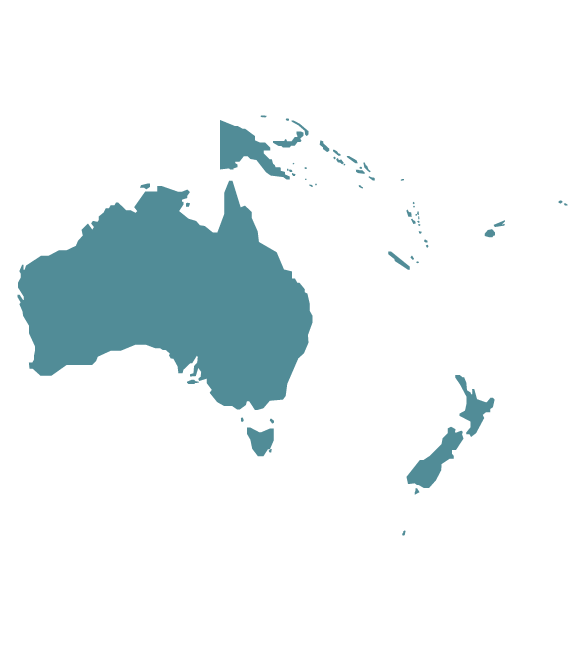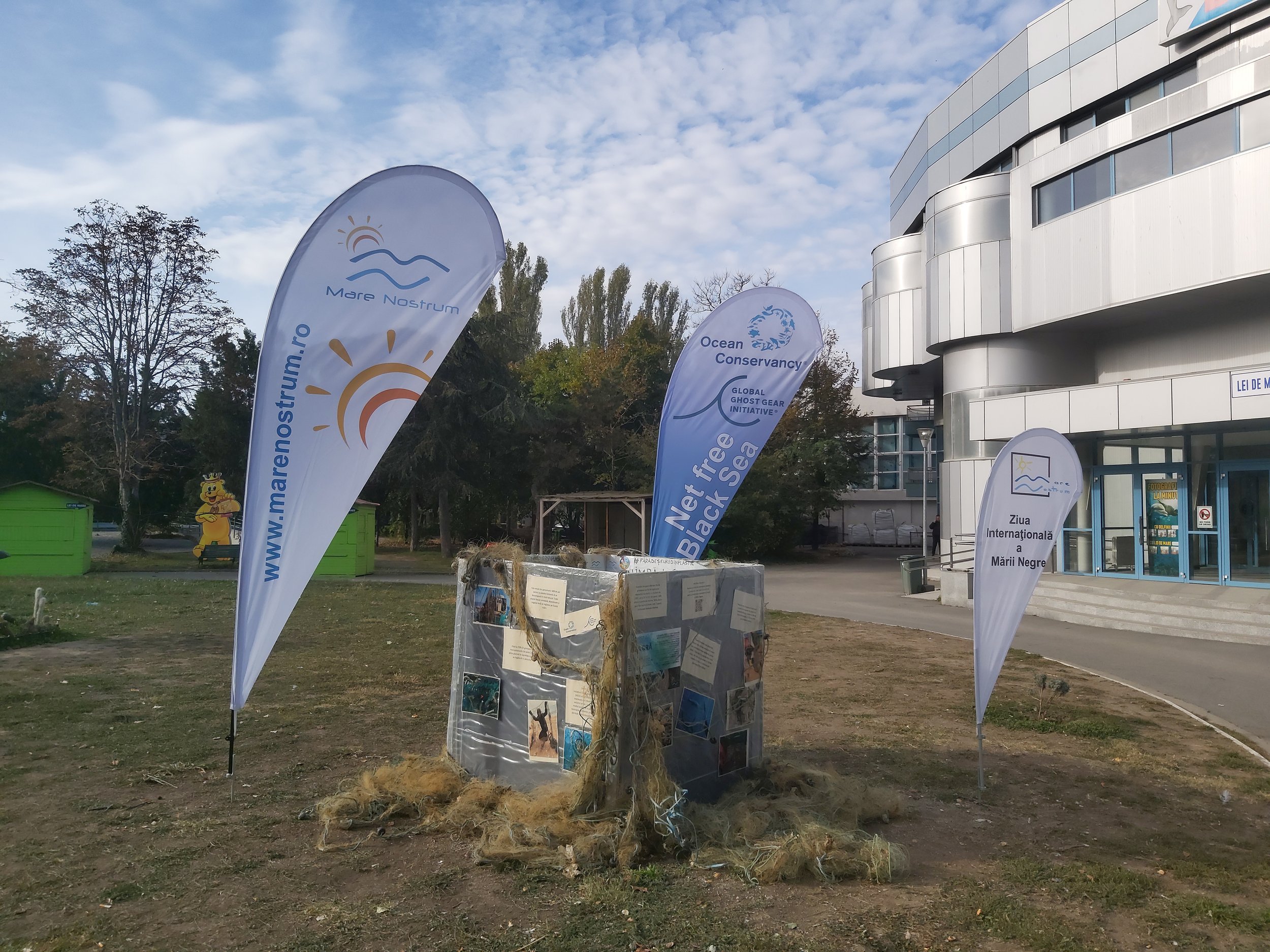Our
projects
Projects on this page are divided into two categories: GGGI Signature Projects and GGGI Small Grants.
GGGI Signature Projects are collaborative projects that have been designed by and funded through the GGGI involving several GGGI members and other partners contributing to large-scale and often multi-phase projects.
GGGI Small Grants are projects are funded through the GGGI Small Grants Program, which is a competitive bid-based program open to GGGI members only, pending available funding. GGGI Small grants typically involve one or more GGGI members working on specific projects in select geographies.
GGGI projects by region - select a region and then click “explore” to see projects from each region
All Projects
Search by Category
- Africa 4
- Asia 6
- Capacity Building Workshops 12
- Central and South America 1
- Data Collection 14
- EOL Gear Collection/Recycling 14
- Europe 5
- Fisher Interviews 9
- Gear Removal 25
- North America 14
- Oceania 2
- Outreach and Education 23
- Predictive Models 5
- Side Scan Sonar Surveys 5
- Technology Testing 8
- UAV Surveys 4
GGGI Small Grant (2024) - Patuakhali Science and Technology University (Bangladesh)
Bangladesh is located on the Bay of Bengal, which supports vast commercial and artisanal fisheries. Through this 2024 small grant, Patuakhali Science and Technology University (PSTU) expanded its efforts to understand local causes of gear loss, and to educate fishing communities in St. Martine Island and the city of Chittagong about ALDFG impacts. In addition to organizing community workshops, PSTU also hosted a community policy dialogue to provide policy recommendations for the prevention and mitigation of ghost fishing in the Bay of Bengal.
GGGI Small Grant - (2024) - Local Independent Sea Anglers (UK)
The Angler’s National Line Recycling Scheme (ANLRS) has expanded on its success of past years, recycling more than 125 million meters of monofilament angling line and more than 100,000 single use plastic items generated from recreational angling in the UK. With funding from its 2024 small grant, ANLRS plans to expand its footprint into three new areas by recovering lost gear, collecting data and information on the source of the gear, sending recovered material for recycling, and implementing an awareness campaign to encourage participation from local fishing communities.
GGGI Small Grant (2024) - Stand Out for Environment Restoration (Nigeria)
The Fishing Net Gains Community Integrated Center project, led by the SOFER Initiative, made significant progress in 2024. As part of this project, the SOFER Initiative recruited 16 local ghost gear retrievers, who successfully recovered 1,919 kg of waste fishing gear across eight coastal communities in Nigeria. Additionally, 25 women from the local community were trained to convert fishing gear into fabric at the Community Integrated Centre (CIC). The CIC serves as a multifunctional facility: a hub for fabric production; a welfare center; and a cooperative space for fishermen, women, fish processors, and traders. The facility also functions as a training center for fabric production.
GGGI Small Grant (2023) - TUNACONS (Ecuador)
The mission of TUNACONS is to promote actions for the sustainability of the tuna purse-seine fishery in the Eastern Pacific Ocean. Through the GGGI Small Grants Program, the Ecuador-based group TUNACONS successfully implemented the project “Taking Care of Galápagos for the Recycling of FADs from TUNACONS Fleet with the Possibility of Stranding on Coasts.”
A main objective of the project has been to reduce the ecological impact generated by ALDFG by recovering FADs from the TUNACONS fleet that had an imminent possibility of stranding off the coast of the Galápagos Islands, and to deliver the intercepted materials to local environmental managers for distribution and/or proper disposal.
GGGI Small Grant (2023) - Tangaroa Blue Foundation (Australia)
In an Australian first, Project ReCon was launched in December 2022 along the Great Barrier Reef to provide communities with a way of contributing to an ALDFG recovery, repair, reuse, and recycling project. Through the GGGI Small Grants Program, Tangaroa Blue will expand their initial trail and extend Project ReCon to enable participation of additional communities along the Great Barrier Reef, the Torres Strait Islands, and the Gulf of Carpentaria.
GGGI Small Grant (2023) - Northwest Straits Foundation (USA)
Over 10,700 crab pots are lost each year in Washington’s Salish Sea (WASS) resulting in the loss of more than 142,000 harvestable size Dungeness crab each season. The recreational crabbing sector accounts for 86% of this gear loss, much of which occurs from user error. The Northwest Straits Foundation (NWSF) is working to reduce gear loss through its Catch More Crab recreational outreach campaign, educating crabbers on best practices to prevent pot loss for a healthy WASS.
GGGI Small Grant (2023) - Go Green Malawi (Malawi)
This pilot project aimed to protect human and environmental health from plastic waste and abandoned, lost, or discarded fishing gear (ALDFG) in Malawi by strengthening knowledge and capacity among decision makers in Malawi. An initial feasibility study was conducted and included research, trainings, and community science to determine the causes and sources of ALDFG, examine costs and opportunities for return and recovery, and overall reduction of plastic waste. The study is also considering the causes of abandonment of the traditional methods and tools, the level of acceptance among fishermen to return to them, and a cost benefit analysis of such reintroduction. During the first quarter of the project, 8 collection points were established in Nkhata bay and Salima districts (substitute for Monkey bay).
GGGI Small Grant (2022/2023) - Mare Nostrum (Romania)
The pollution issue in the Black Sea has escalated over the last two decades, transforming it into one of Europe’s most polluted seas. This problem carries significant ramifications for the economies, social well-being (including health), and the environment of the countries bordering its shores. Adding to this concern is the persistent challenge of abandoned, lost, or discarded fishing gear, often referred to as "ghost gear," which exacerbates marine plastic pollution, making it a prominent contributor to environmental degradation. During “Net Free Black Sea” Mare Nostrum removed approximately 1,380 kg of ALDFG in 7 dedicated collection sessions from 18 locations.
GGGI Small Grant (2023) - Hagamos Más (Mexico)
Fundación Hagamos Más por Santa Rosalía (Hagamos Más) is a community service non-profit in Baja California Mexico that works with fishing communities to promote community participation and women’s empowerment on a variety of issues. Through the GGGI Small Grants Program, Hagamos Más has been implementing a “weigh and pay” program for the recovery of ALDFG and other plastic marine debris from Mexico’s westcentral Gulf of California coast, along with a variety of outreach activities with fishing communities in Baja California Sur, Mexico. Women from fishing communities have been trained and paid to be communicators for the program, an approach that has reached nearly 840 people in four priority communities so far. These women are dedicated and effective, and they have become community leaders in the effort to mitigate ALDFG in their local environment.
GGGI Small Grant (2023) - Wolf Fish Ltd. (Thailand)
The Gulf of Thailand is one of the most active fishing locations globally. Gillnets are used extensively in this area and when lost, they can have serious impacts on the local ecology and both target and non-target species. ARRI’s two study sites - the islands of Koh Phangan and Koh Tao - are within the Surat Thani Environmental Protected Area, which is located directly south of this intensive fishing region. Reports from local marine conservation organizations indicate significant accumulations of Abandoned, Lost and Discarded Fishing Gear (ALDFG), primarily gillnets, which are continuously found entangled on the reefs surrounding these islands, posing a serious threat to local wildlife and the marine ecosystem.
GGGI Small Grant (2023) - Environment and Food Foundation Cameroon (Cameroon)
Through this project, the Environment to Food Foundation (E2F) Cameroon has built on the organization’s existing work in Douala, Cameroon, to provide a holistic approach to the sustainable management of ALDFG by increasing the knowledge base among relevant stakeholders through data collection, education campaigns, and prevention and mitigation efforts. Workshops, educational materials, and direct engagement with the fishing community has lead to an increase the reach of E2F and continues to empower local communities and to drive policy and advocacy efforts around ALDFG.
GGGI Small Grant (2022) - Sea Mammal Education Learning Technology Society (SMELTS) (USA)
The SMELTS project is focused on developing technology to remove marine debris—specifically, anchored fishing traps—from ocean environments. During the course of this project, SMELTS built two neutrally buoyant marine debris lifting engine prototypes to develop techniques to recover marine debris, including anchored gear that can entangle whales and other marine wildlife. SMELTS worked with partner fishers and used commercial vessels to test new devices and techniques to identify and recover ALDFG. SMELTS also utilized a small, portable working-class underwater ROV with gripping arms and 4k video capability to record underwater marine debris recovery efforts, which will aid in training and in the development of techniques that can be used to aid entangled whales and other marine wildlife in the future.
GGGI Small Grant (2022) - Emerald Sea Protection Society (Canada)
The Emerald Sea Protection Society (ESPS) small grant project consisted of targeted ghost gear recovery operations off the coast of British Columbia and media outreach to raise awareness of ALDFG. The original plan was to purchase a boom crane to increase the lift potential of the ESPS field vessel to pull ALDFG from the water to the surface. However, the vessel was deemed incompatible with a boom crane after an engineering assessment. For this reason, ESPS used funds allocated to this project to upgrade the ROVs, GPS systems and associated hardware that the society uses to detect and remove ALDFG.
GGGI Small Grant (2022) - Stichting Ghost Diving (Greece)
Stichting Ghost Diving is implementing a project dedicated to locating ALDFG in Mediterranean waters using unoccupied aerial vehicles (UAVs) in near-shore coastal environments. Through the course of this project, Stichting Ghost Diving is working with fellow GGGI member Wolf Fish Ltd. to perform aerial surveys using UAVs to gather information about the distribution of ALDFG along specific areas of the Greek coastline. Survey flights in areas of regional interest will return results about the type, location, and density of ALDFG, and about ALDFG impact across large regions of the coast.
GGGI Small Grant (2022) - Patuakhali Science and Technology University (Bangladesh)
The Southern coastal districts of Bangladesh, especially Patuakahli and Cox’s Bazar district, are home to the largest catch of hilsa and shrimp from the Bay of Bengal, with most fishers in the region predominantly artisanal gillnet and seine net fishers. In these fisheries, a significant amount of abandoned, lost, or discarded fishing gear (ALDFG) finds its way into the Bay of Bengal each year, with a wide range of environmental and economic impacts.
Two coastal sites, Kuakata of Patuakhali and Najirartak & Doriarnagar of Cox’s Bazar were selected for this study. For the collection of ALDFG, groups of daily and deep-sea fishers as well as a local youth group were formed in each site, consisting of more than 100 people in total. More than 4,000kg of ALDFG and other marine debris were collected from Kuakata and Cox’s Bazar, of which the quantity of ALDFG was 1,620 kg and 1,310 kg, respectively. In addition to ALDFG, plastic bottles, polyethylene bags, sandals, etc. are other common items found during ALDFG collections.
Joanna Toole Award (2022) - Uganda Junior Rangers (Uganda)
This project is designed to address ALDFG along various fish landing sites around Lake Victoria, Uganda; analyze ALDFG impacts on the health of Lake Victoria fisheries; educate the local community on ALDFG; map ALDFG waste and disposal sites; and recover damaged, old and discarded fishing nets left in and around Lake Victoria or on its islands.
GGGI Small Grant (2021) - Local Independent Sea Anglers (UK)
Engaging with local authorities, national agencies, and partners, this project delivered a community-based approach to promote awareness of, recovery of, and research into the origins of ALDFG, from both commercial and recreational sources along the Sussex Coast. The project was the first to research ALDFG from recreational sources, and targeted identified hot spots where ALDFG could be removed, deposited safely, collected and transported for recycling.
Joanna Toole Award (2021) - Myanmar Ocean Project (Myanmar)
The Myanmar Ocean Project (MOP) was founded in 2018 by SCUBA diver Thanda Ko Gyi to raise awareness about ocean conservation in Myanmar and to find solutions to protect the marine environment from harm caused by human activity, including impacts from abandoned, lost or discarded fishing gear (ALDFG). In collaboration with the GGGI, MOP has successfully conducted surveys and cleanup expeditions across the Myeik Archipelago, produced Myanmar’s first comprehensive ALDFG report, supported local community engagement, and removed nearly two tons of ALDFG from sensitive coral reefs.
GGGI Small Grant (2021) - Coastal Restoration Society (Canada)
Coastal Restoration Society (CRS), Canada’s largest environmental remediation non-profit, supports the resource stewardship goals of Indigenous, municipal, provincial and federal governments across Canada. Since 2018, CRS has completed dozens of large-scale industrial environmental remediation projects in Indigenous territories throughout Canada. CRS projects include ghost gear retrieval, anthropogenic debris removal, pollution and petroleum spill response, derelict vessel salvage, aquatic invasive specie mitigation and control, abandoned aquaculture site remediation, and emergency climate change response.
GGGI Small Grant (2021) - Teem Fish (Canada)
To facilitate the reporting of lost and found crab gear in fishing grounds in British Columbia, Canada, Teem Fish is developing a near real-time gear tracking software application that can be added to the existing e-logbook in use by the Area A Dungeness Crab fleet. Teem Fish is developing the software and providing training for harvesters to test the software will ensure information is reported more accurately, consistently, and in a much more timely manner across the fleet, and in accordance with new lost gear reporting requirements from the Department of Fisheries and Oceans, Canada (DFO) and to reduce the amount of derelict gear in the water.

Become a Member
Interested in becoming a member? Click the button below to learn more.


























